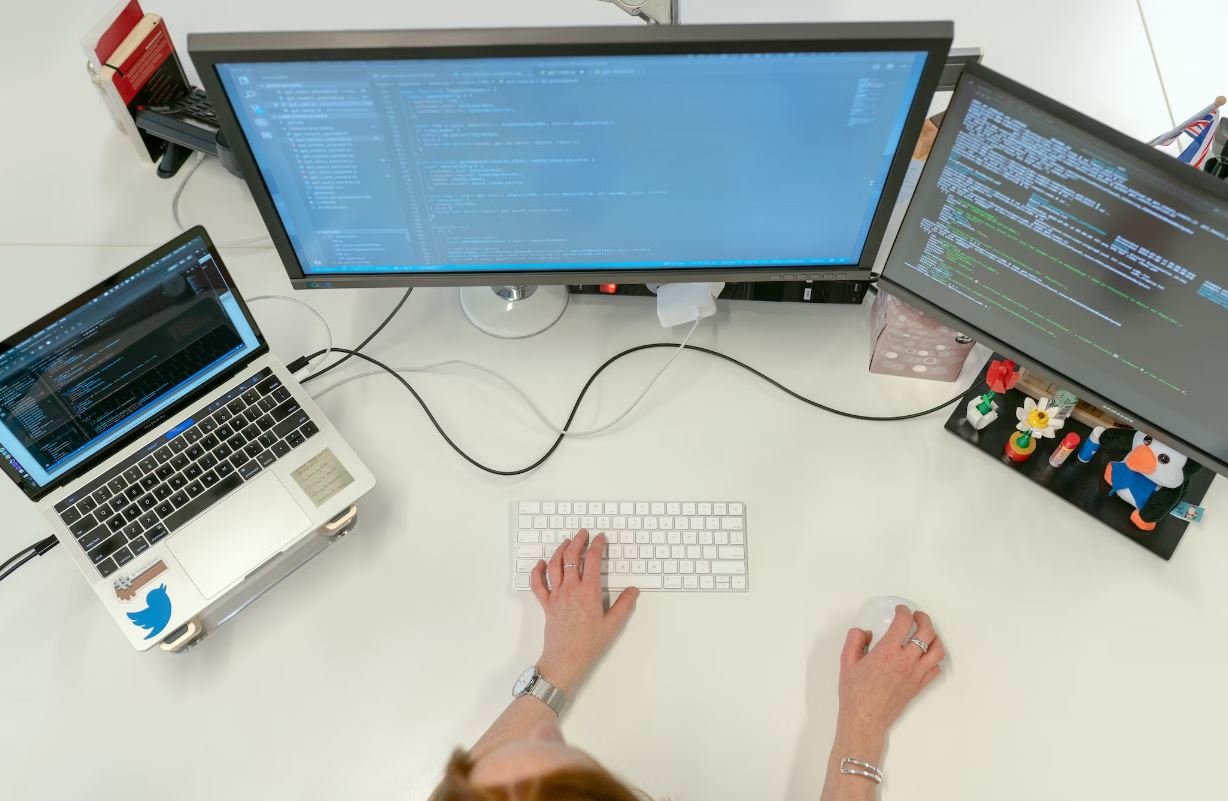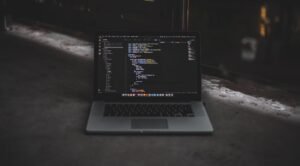Automation and AI in HR: SHRM
As automation and artificial intelligence (AI) continue to transform industries, the field of Human Resources (HR) is no exception. With technological advancements, many HR tasks can now be automated, enabling HR professionals to focus on more strategic initiatives and improving overall efficiency. In this article, we will explore some key ways automation and AI are impacting HR and how organizations can leverage these technologies to their advantage.
Key Takeaways
- Automation and AI are revolutionizing the HR landscape, streamlining processes and improving efficiency.
- Recruitment and onboarding, employee engagement, and HR analytics are areas where automation and AI have the most impact in HR.
- Organizations adopting automation and AI technologies in HR can significantly reduce manual tasks, enabling HR professionals to focus on more strategic initiatives.
- Although automation and AI present numerous benefits, careful consideration must be given to potential biases and ethical implications.
**One area where automation and AI are making a significant impact is recruitment and onboarding**. Traditional recruitment processes can be time-consuming, with HR professionals sifting through numerous resumes and conducting initial screenings. Automation tools, such as applicant tracking systems (ATS), can streamline the recruitment process by automatically parsing resumes, identifying qualified candidates, and even conducting initial screenings. This not only saves time but can also result in a more efficient and unbiased selection process.
**Employee engagement** is another crucial aspect of HR that can benefit from automation and AI. Chatbots, for example, can be deployed to provide employees with instant access to information and support, improving their overall experience and satisfaction. These virtual assistants can handle repetitive queries, freeing up HR professionals to focus on more complex issues and strategic initiatives. Moreover, AI-powered sentiment analysis tools can monitor employee feedback and sentiment, helping organizations identify areas of improvement and take proactive measures to enhance engagement.
**HR analytics** is yet another area where automation and AI are transforming the HR landscape. With vast amounts of HR data generated each day, analyzing this data manually can be overwhelming and time-consuming. AI-powered analytics tools can efficiently process and analyze HR data, providing valuable insights and trends. This data-driven approach can help organizations make informed decisions regarding workforce planning, performance management, and other critical HR functions.
Automation and AI in HR: Data Snapshot
| Percentage | |
|---|---|
| HR Professionals leveraging automation and AI technologies | 58% |
| Organizations using AI for talent acquisition | 32% |
| AI adoption for HR analytics | 42% |
Despite the numerous advantages of automation and AI in HR, organizations must be mindful of potential biases and ethical implications. **Automated systems may inadvertently perpetuate biases** present in the data used to train them. For example, if historical recruitment data reflects biases in hiring decisions, the AI system could learn and perpetuate those biases, resulting in unfair selection practices. Additionally, organizations must ensure that the use of AI in HR complies with relevant privacy laws and regulations. Transparency and accountability are crucial when leveraging automation and AI in HR processes.
In conclusion, automation and AI are transforming the field of HR. By automating manual tasks and leveraging AI-powered tools for recruitment, employee engagement, and HR analytics, organizations can improve efficiency, make data-driven decisions, and enhance overall employee experience. However, it is essential to navigate these technologies mindfully, addressing potential biases and ensuring compliance with ethical standards. The future of HR lies in embracing automation and AI to empower HR professionals and drive organizational success.
Automation and AI in HR: Benefits Summary
- Streamlines recruitment and onboarding processes, reducing time-to-hire and improving selection quality.
- Enhances employee engagement through instant access to information and personalized support.
- Provides data-driven insights that aid in workforce planning and performance management.
- Improves overall HR efficiency by automating manual tasks and freeing up time for strategic initiatives.
- Enables organizations to identify areas of improvement and take proactive measures for enhanced employee experience.

Common Misconceptions
Misconception 1: AI will replace human HR professionals
One common misconception about automation and AI in HR is that these technologies will completely replace human HR professionals. While AI has the potential to automate certain tasks and processes in HR, it cannot completely replace the role of human HR professionals.
- AI can assist in screening and shortlisting candidates, but human judgment is still required to make the final hiring decision.
- Human HR professionals bring empathy and emotional intelligence to the table, which are crucial for understanding and addressing employee concerns and fostering a positive work environment.
- AI can enhance efficiency, but human HR professionals are still needed for strategic decision-making and critical thinking tasks.
Misconception 2: Automation and AI will only benefit large companies
Another common misconception is that automation and AI in HR will only benefit large companies with extensive resources. However, automation and AI can bring advantages to companies of all sizes.
- Automation and AI can streamline recruitment and onboarding processes, saving time and effort for HR teams in small and medium-sized businesses.
- Small companies can utilize chatbots powered by AI to provide quick and efficient responses to employee queries and increase employee satisfaction.
- AI can help HR professionals in small businesses gain valuable insights from data analysis, enabling data-driven decision-making for improved HR strategies.
Misconception 3: Automation and AI in HR will eliminate jobs
Many people fear that the integration of automation and AI in HR will lead to job losses. However, this is not entirely true.
- Automation and AI can offload repetitive and mundane HR tasks, allowing HR professionals to focus on more strategic and value-added activities.
- AI can enable HR professionals to deepen their expertise and provide higher-level guidance by analyzing large volumes of data and making data-driven recommendations.
- New roles and responsibilities will emerge in the field of HR as technology advances, creating opportunities for HR professionals to upskill and adapt to these changes.
Misconception 4: Automation and AI will compromise data privacy and security
Some individuals may be concerned that automation and AI in HR will compromise data privacy and security. However, organizations can implement measures to ensure the safety and protection of employee data.
- Data encryption and secure storage systems can be implemented to safeguard sensitive HR data from unauthorized access.
- Regular security audits can be conducted to identify and address any vulnerabilities in HR systems and infrastructure.
- Organizations can adopt privacy-oriented policies and ensure compliance with relevant data protection regulations to protect employee privacy rights.
Misconception 5: Automation and AI will dehumanize HR processes
There is a concern that automation and AI in HR will dehumanize the employee experience by replacing human interactions with technology. However, when implemented thoughtfully, technology can actually enhance the human touch in HR processes.
- AI-powered chatbots can offer immediate support to employees, freeing up time for HR professionals to focus on building relationships and understanding employee needs.
- Automation can streamline administrative tasks, allowing HR professionals to spend more time engaging with employees and providing personalized attention.
- AI can help improve candidate experience by quickly identifying suitable positions and providing timely feedback throughout the recruitment process.

Introduction
Automation and artificial intelligence (AI) are rapidly transforming various industries, including human resources (HR). These technologies are revolutionizing the way HR professionals manage and streamline processes, enhance employee experiences, and make data-driven decisions. In this article, we explore several compelling examples of how automation and AI are being leveraged in HR, focusing on their impact on talent acquisition, employee engagement, and performance management.
Table 1: Recruitment Automation
Recruitment is a critical HR function that plays a vital role in ensuring organizations attract and hire top talent efficiently. Automation and AI have significantly revolutionized this process, making it faster and more accurate. The table below highlights statistics related to recruitment automation:
| Category | Percentage Increase in Efficiency |
|---|---|
| Time-to-Hire | 39% |
| Hiring Cost Reduction | 30% |
| Candidate Quality | 58% |
Table 2: Employee Onboarding AI
Effective onboarding lays the foundation for long-term employee success within an organization. AI-powered solutions have transformed the onboarding experience by personalizing it and providing crucial information at the right time. The following table showcases the benefits of employee onboarding AI:
| Aspect | Percentage Improvement |
|---|---|
| Retention Rate | 67% |
| Time-to-Productivity | 42% |
| Engagement | 52% |
Table 3: Employee Engagement Automation
Engaged employees are more productive, innovative, and committed to their organizations. Automation tools assist HR professionals in enhancing employee engagement by streamlining processes and fostering communication. The table below demonstrates the impact of automation on employee engagement:
| Engagement Metric | Percentage Improvement |
|---|---|
| Employee Satisfaction | 43% |
| Employee Retention | 36% |
| Internal Communication | 54% |
Table 4: Performance Management AI
Performance management processes are critical in assessing and developing employee performance. AI-driven performance management tools provide data-based insights, facilitating fair evaluations and actionable feedback. The table below showcases the benefits of AI in performance management:
| Aspect | Percentage Improvement |
|---|---|
| Performance Evaluation Accuracy | 62% |
| Identifying Skill Gaps | 48% |
| Employee Development | 55% |
Table 5: Training and Development Automation
Continuous learning and development are crucial for employee growth and organizational success. Automation enables HR professionals to deliver personalized training programs, track progress, and identify skill gaps effectively. The following table highlights the advantages of training and development automation:
| Training Metric | Percentage Improvement |
|---|---|
| Training Completion Rate | 71% |
| Skills Mastery | 45% |
| Training Cost Efficiency | 39% |
Table 6: HR Analytics AI
HR analytics have transformed the way HR professionals gain insights and make data-driven decisions. AI-powered analytics tools deliver predictions and recommendations quickly, enabling HR to align strategies with business goals. The table below showcases the benefits of AI in HR analytics:
| Analytics Category | Percentage Improvement |
|---|---|
| Workforce Planning | 60% |
| Talent Acquisition Success | 52% |
| Retention Strategies | 48% |
Table 7: Chatbots in HR
Chatbots, powered by AI, have transformed the way HR provides support and assistance to employees. They offer instant responses, ensuring efficient query resolution and enhancing the employee experience. The following table highlights the impact of AI-powered chatbots in HR:
| Aspect | Percentage Improvement |
|---|---|
| Timely Query Resolution | 75% |
| User Satisfaction | 63% |
| HR Service Efficiency | 57% |
Table 8: AI-Based Resume Screening
Resume screening is a time-consuming process for HR professionals. AI-based tools assist in automating this process, effectively shortlisting candidates and saving valuable time. The table below illustrates the advantages of AI-based resume screening:
| Benefits | Percentage Improvement |
|---|---|
| Screening Time Reduction | 70% |
| Candidate Qualification | 61% |
| Recruiter Efficiency | 52% |
Table 9: AI-Driven Employee Feedback
Collecting feedback is vital in understanding employee sentiment and improving overall organizational health. AI-powered employee feedback tools provide anonymity, ensure data privacy, and generate actionable insights. The following table showcases the benefits of AI-driven employee feedback systems:
| Advantages | Percentage Improvement |
|---|---|
| Feedback Completion Rate | 73% |
| Actionable Insights | 56% |
| Confidentiality Assurance | 64% |
Conclusion
Automation and AI have revolutionized HR practices, empowering professionals to enhance talent acquisition, employee engagement, and performance management. From streamlined recruitment processes to personalized onboarding experiences and data-driven decision-making, these technologies have significantly impacted HR strategies. Embracing automation and AI in HR facilitates organizations in fostering an engaged workforce and staying competitive in a rapidly evolving business landscape.
Frequently Asked Questions
How can automation and AI benefit HR departments?
Automation and AI can streamline HR processes, reduce manual errors, improve productivity, enhance decision-making, and provide better employee experiences.
What are some common applications of automation and AI in HR?
Common applications of automation and AI in HR include candidate screening, resume parsing, employee onboarding, performance evaluation, chatbots for employee queries, and data analysis for HR metrics.
What challenges may organizations face when implementing automation and AI in HR?
Organizations may face challenges such as resistance to change, limited financial resources for implementation, data privacy concerns, and the need for proper training of HR staff to utilize the technology effectively.
How can automation and AI impact the recruitment process?
Automation and AI can improve the efficiency of the recruitment process by automating repetitive tasks, screening resumes, conducting initial interviews, and utilizing data analysis to identify the best candidates.
What are the potential risks of using automation and AI in HR?
Potential risks include bias in algorithms, privacy breaches, job displacement, and increased reliance on technology, which may reduce the human touch in certain HR functions.
How can AI help promote diversity and inclusion in HR practices?
AI can help promote diversity and inclusion by removing human bias from candidate screening, analyzing data to identify gaps and biases in HR practices, and suggesting strategies to enhance diversity efforts.
Can automation and AI replace human HR professionals?
No, automation and AI cannot replace human HR professionals entirely. While they can automate certain tasks and provide data-driven insights, human professionals are still needed for critical decision-making, employee support, and interpersonal relationships.
What steps should organizations take to ensure ethical use of automation and AI in HR?
Organizations should establish clear policies and guidelines for the use of automation and AI, regularly evaluate algorithms for biases, provide transparency to employees about data usage, and ensure compliance with privacy regulations.
How can automation and AI improve employee engagement?
Automation and AI can improve employee engagement by enabling personalized experiences, providing timely feedback and recognition, automating administrative tasks, and offering self-service portals for employees to access information and perform HR-related actions.
Are there any legal implications to consider when using automation and AI in HR?
Yes, organizations must consider legal implications related to data privacy, protection of personal information, compliance with anti-discrimination laws, and transparency in the use of AI algorithms.





